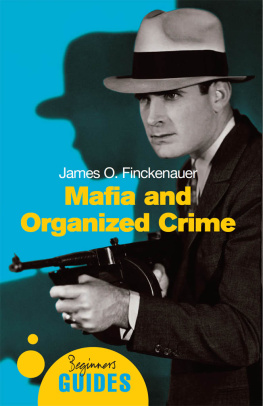The Honoured Society
First published in Germany in 2008 by
Droemersche Verlagsanstalt Th. Knaur Nachf. GmbH & Co.
First published in Great Britain in 2012 by Atlantic Books,
an imprint of Atlantic Books Ltd.
Copyright Petra Reski, 2008
Translation Shaun Whiteside, 2012
The moral right of Petra Reski to be identified as the author of this work has been asserted by her in accordance with the Copyright, Designs and Patents Act of 1988.
The moral right of Shaun Whiteside to be identified as the translator of this work has been asserted by him in accordance with the Copyright, Designs and Patents Act of 1988.
All rights reserved. No part of this publication may be reproduced, stored in a retrieval system or transmitted in any form or by any means, electronic, mechanical, photocopying, recording or otherwise, without the prior permission of both the copyright owner and the above publisher of this book.
Every effort has been made to trace or contact all copyright holders. The publishers will be pleased to make good any omissions or rectify any mistakes brought to their attention at the earliest opportunity.
10 9 8 7 6 5 4 3 2 1
A CIP catalogue record for this book is available from the British Library.
Hardback ISBN 978 1 84887 134 2
Trade Paperback ISBN 978 1 84887 135 9
eISBN 978 0 85789 929 3
Designed by Richard Marston
Printed in Great Britain
Atlantic Books
An imprint of Atlantic Books Ltd
Ormond House
2627 Boswell Street
London WC1N 3JZ
www.atlantic-books.co.uk
For Shobha
Foreword

The sun is shining, and a light spring breeze stirs the lawyers robes as we walk to the hearing in the Higher Regional Court. Its an impressive building, with colonnades, broad flights of stairs and high ceilings.
Even before I get the chance to admire the architecture any further, weve reached the courtroom, which has two policemen armed with guns and truncheons standing outside. Which surprises me a little. At the last hearing in a regional court there were no policemen; after all, these werent criminal trials.
Has police protection become standard in German regional courts? After all, much has changed in Germany since Ive been living in Italy. I dont have a chance to ask our lawyer. Its only a few minutes until the hearings due to start. We step into the courtroom and sit down behind the sign that reads Beklagte: Defendant. Im ruminating on the strangeness of the word, when I realize it refers to me. Sitting next to me is the publisher, my co-defendant. We have to push our chairs close together so that we can both sit behind the Defendant sign. A tense silence reigns in the courtroom. We are sitting at Formica tables, like students in a seminar room, preparing to take our state exam in Late Medieval French.
The lawyers flick through their files, and I remember what it was like to hold my book in my hands for the first time. Id impatiently torn off the plastic wrapping, and the spine of the book had cracked slightly when I opened it up. Both reverent and anxious, I had flicked through the virgin pages that smelled of paper and solvent. Its always an intimate moment for me to hold at last a book that previously existed only virtually, as a Word document or an email attachment. Feeling it, smelling it and knowing that it will now go on to live its own life, independent of me. While I had still been sitting bent over the manuscript, some German friends had asked me apprehensively whether it wasnt dangerous to write a book about the Mafia. After all, anti-Mafia journalists in Italy lived under police protection.
But my books being published in Germany, Id replied.

It is still silent in the courtroom. The two policemen sitting outside the door both have a lot of gel in their hair, one of them has such curly hair that I cant help wondering whether it might be a perm. Arent perms for men out of fashion?
The judges bench is slightly raised, and a crucifix hangs on the wall behind. I look to the right, to the gallery, where I recognize a few familiar faces a friend, a female journalist, a male journalist. The male journalist is thumbing through his notepad. I run my hands over the Formica table, which looks as if its new. In Italy, courtrooms are always slightly tatty and the microphones never work. That would be unthinkable here, quite apart from the fact that the courtroom is small enough for anyone to be heard even without a microphone.
Seen from distance, my view of Germany had always been that it was the country with litter-free fields and trains that ran on time. Unlike Italy, where everythings a bit haywire, where the Mafia has infested whole stretches of the country, and even penetrated the highest political offices. With every year that I spent in Italy, Germany had become cleaner, more punctual and more incorruptible to me. And my Italian friends reinforced that assessment perhaps out of conviction, or perhaps only because they were being kind. They exclaimed, Ah, la Germania! Tutto funziona! when I raved to them about Germany. They praised the Germans sense of civic responsibility, the functioning legal system and the honest politicians who have to resign when so much as an unauthorized free trip can be proved against them. Never, I thought, could the Mafia really find a foothold in Germany. Because the Germans would take unhesitating and energetic action against it.

The door behind the judges bench is still closed. No one in the courtroom dares even to whisper. Some people clear their throats. Others guiltily turn off their mobile phones, farewell tunes ring out and fall silent until theres nothing to be heard but the rustling of paper. I look at the crucifix and recall a day in the high security courtroom in Caltanissetta, where the trials against the assassins of Giovanni Falcone were held. I was sitting amongst the journalists behind the lawyers, right next to the cages in which the mafiosi sat. The hearing dragged on until late evening. I saw the lawyers of the Mafia bosses Tot Riina and Leoluca Bagarella chatting amicably with their clients. The cages were roped off with only a thin, burgundy-coloured cord, which did nothing to prevent the lively exchange of ideas between the mafiosi and their lawyers. They shook hands through the bars. Late that night I drove back to Palermo, thinking all the way about what I had seen. Should high security imprisonment look like that?, I wondered. They might as well just sentence them to house arrest. Which is, incidentally, pretty much the norm in Italy. As if they werent Mafia bosses, but badly behaved children. I was convinced that nothing like that could ever happen in Germany.

At last the door behind the judges bench opens, and the court comes in, a female judge and two assessors. I jump up from my chair, like everyone else there Im determined to show respect to the court. Chairs scrape, and under the bench the wooden platform creaks as the judges take their seats. The journalist in the gallery clicks his biro. My book lies on the table next to him.












